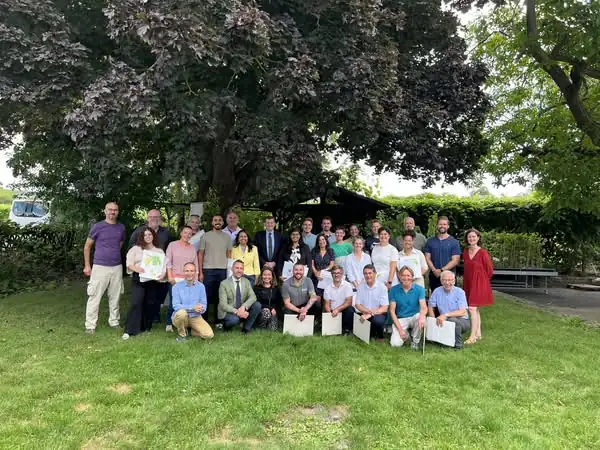The Head of the Plant Microclonal (in vitro) Propagation and Virus Planting Material Research Service of the LEPL Agricultural Scientific Research Center, Tekle Zakalashvili, participated in the Fourth International Ampelography Training Course organized by the International Organization of Vine and Wine (OIV) in Germany.
The Agricultural Scientific Research Center (SRCA) of Georgia shared glimpses of the event on its official Facebook page on Tuesday, August 5, 2025. A small note about the event was also shared along with its photographs.
The main aim of the training was to deepen theoretical and practical knowledge in the field of description and identification of grape varieties (ampelography), introduce modern methods, standardize the identification of grape varieties, and promote international cooperation.
Key Components of the Training
The training course combined both theoretical and practical components. The theoretical part included the principles of morphological description of grapevines, historical and modern approaches to ampelographic methods, international standards for grapevine identification, and modern data storage systems.
The practical part was devoted to describing more than 100 grapevine varieties in field conditions and recording their characteristics using the descriptors of the International Organization of Vine and Wine (OIV).
It should also be noted that within the framework of the training, the participants had the opportunity to get acquainted with both internationally distributed cultivated grape varieties, as well as disease-resistant hybrids and rootstocks obtained as a result of selection programs.
The international training was hosted by two internationally recognized institutions in the field of ampelography and grapevine research: Geisenheim University and the Julius Kühn Institute.
The training process was led by leading scientists from research centers in five European countries – Germany, Italy, France, Spain, and Portugal.
25 representatives from 18 countries participated in the training, who, after completing the course, successfully passed the final exam and received an international certificate recognized by the International Organization of Vine and Wine (OIV).
This experience will make a significant contribution to the development of modern viticulture practices and the research and preservation of grapevine genetic diversity.



